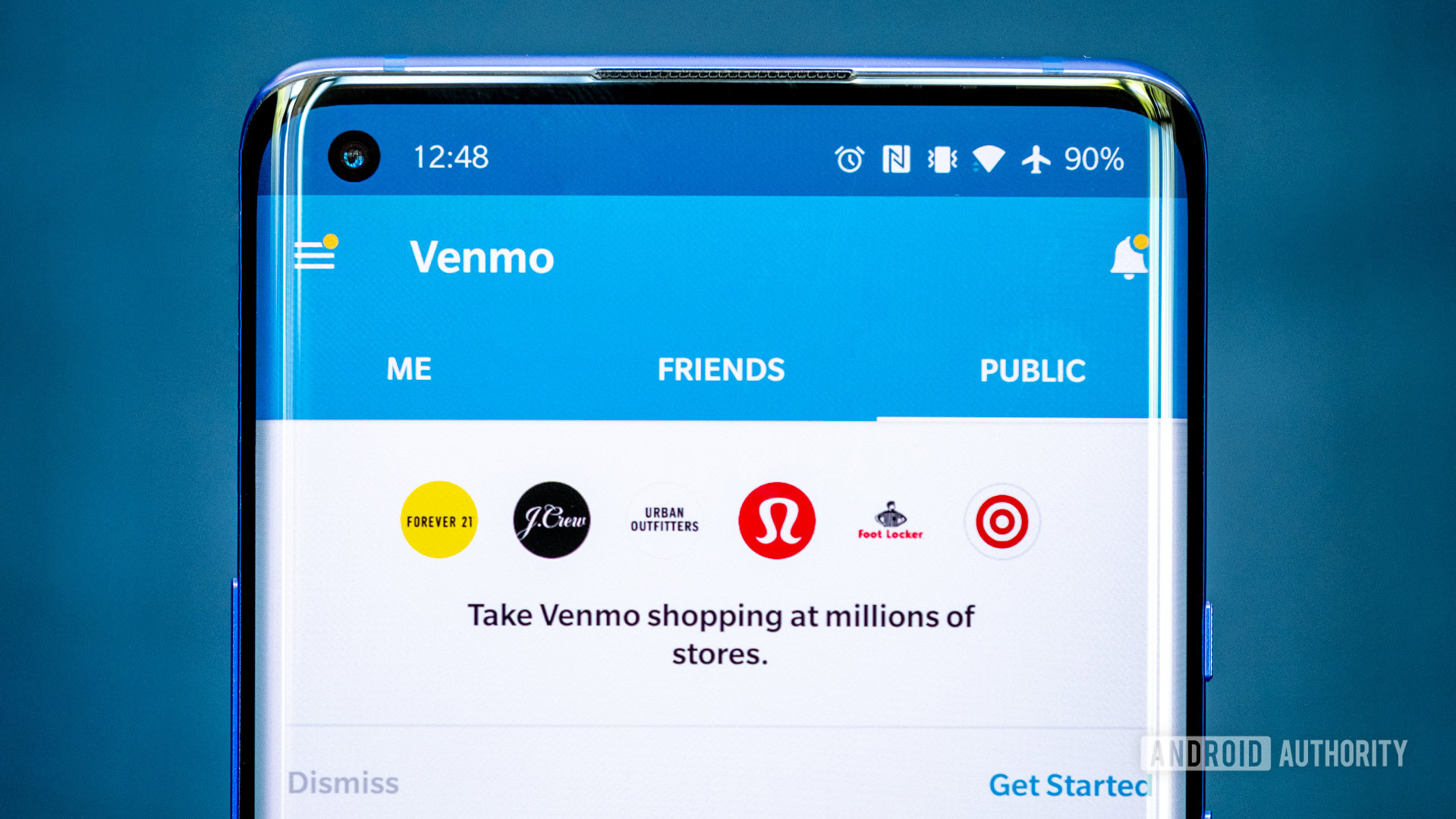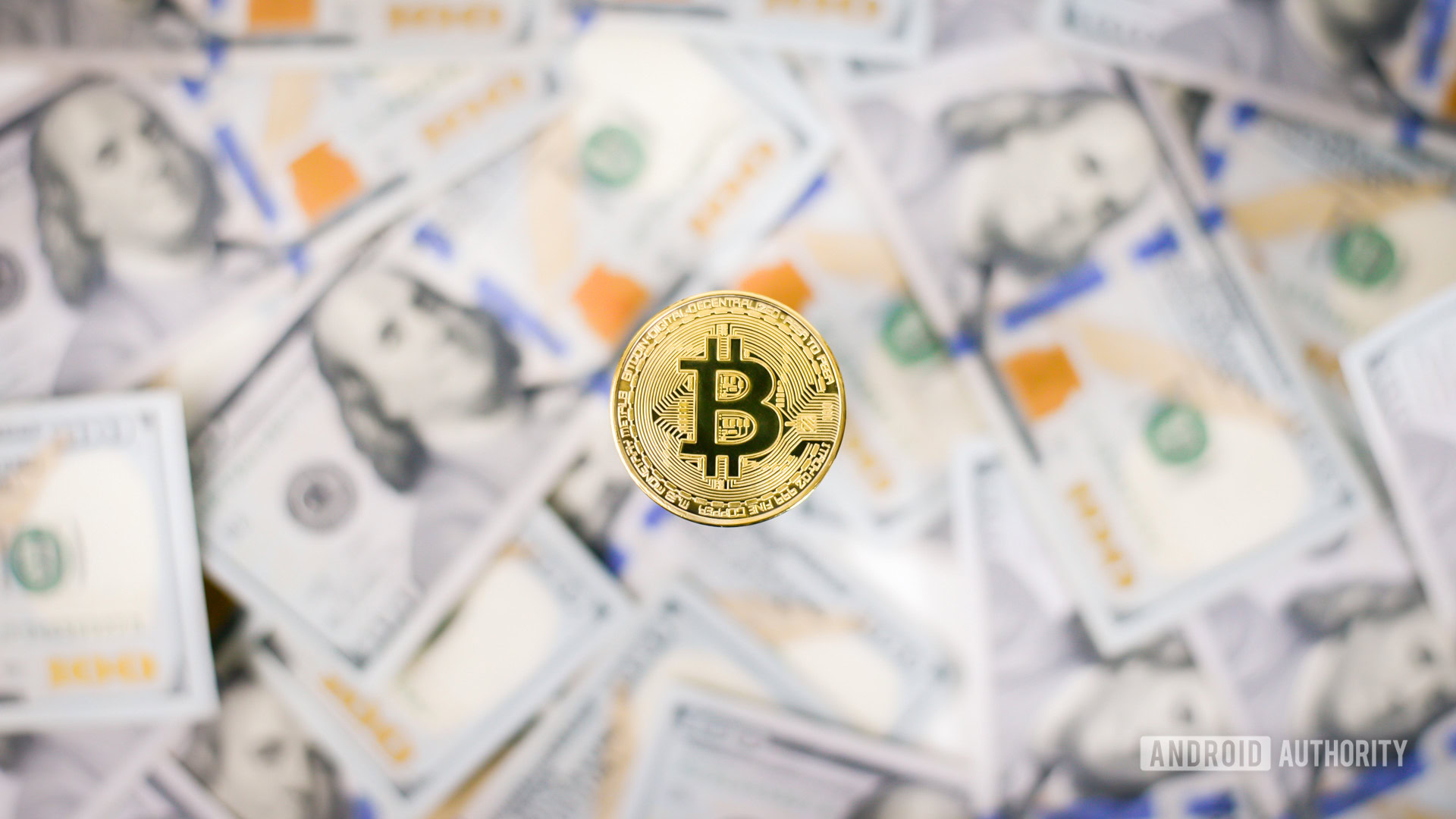Affiliate links on Android Authority may earn us a commission. Learn more.
Does Venmo charge a fee?
Published onAugust 29, 2022

Venmo has quickly become one of the most popular money transfer apps. Much like PayPal, Venmo links to your bank, debit cards, or credit cards, making transfers simple. It’s a quick and easy way to split bills, send money to friends, and even pay for services and products, but does Venmo charge a fee?
Like any other company, Venmo needs to make money, and while there are ways to get by without paying fees, some Venmo fees are involved for specific transactions. Let’s go over them so you don’t get any surprise charges later.
QUICK ANSWER
Venmo charges fees for some transactions and transfers. For example, you'll be charged a 3% fee for sending money to friends using a credit card, but debit card and bank transfers are free. Venmo fees also apply when using convenient features like cashing a check, receiving business payments, making instant withdrawals, making crypto transactions, and more.
What are Venmo’s fees?
Venmo charges fees mostly for specialized transactions. Let’s go over them and get you up to speed.
Sending money to people using a credit card

As previously mentioned, sending money to friends and family using your balance, a bank account, or debit card through Venmo is free. There is a 3% fee for credit card transfers, though.
Adding money using a physical check
Venmo has a convenient feature that allows you to cash checks directly to your account. It’s not free, though. You have to pay a 1% fee to deposit payroll and government checks; there’s a $5 minimum. All other check types will incur a 5% fee, and the same $5 minimum applies.
Related: Venmo vs. PayPal
Receiving business payments for goods and services

Do you run your business through Venmo? You’ll have to factor in the fees. Business accounts will have to pay 1.9% + $0.10 whenever they receive a payment, or if the sender identifies a transaction as for goods and services.
Instant withdrawals
Standard withdrawals to your bank account are free, but Venmo offers a convenient feature for sending money to your bank instantly, using your linked debit card. Taking advantage of this nifty feature will cost you, though. Venmo charges a 1.75% fee for instant withdrawals. There’s a $0.25 minimum and a $25 max.
Buying or selling crypto

If you are trying to join the cryptocurrency craze, you can easily do it from the trusted Venmo app. You’ll have to pay Venmo fees to do this, and the amount varies depending on the dollar amount you’re buying or selling.
Venmo crypto fees:
- $1.00 – $4.99: $0.49
- $5.00 – $24.99: $0.99
- $25.00 – $74.99: $1.99
- $75.00 – $200.00: $2.49
- $200.01 – $1,000.00: 1.8%
- Over $1,000.00: 1.5%
Venmo Mastercard fees
Venmo offers a nifty Mastercard debit card, which makes it easy to use your balance for physical and online purchases. You can use it mostly for free, but there are a couple of fee categories you should keep an eye out for.
Venmo has partnered with MoneyPass for free in-network ATM withdrawals. You can find free-to-use ATMs here. Using an out-of-network ATM will incur a $2.50 fee, and that’s before considering the ATM’s separate fees.
There’s also a $3 fee for withdrawing money over-the-counter. This applies when taking out cash at banks or institutions, when a signature is required to withdraw money.
FAQs
Opening and keeping a Venmo account is free. There are fees only for specific types of transactions.
Venmo money transfers to friends and family are free when using your balance, a bank account, or a debit card. There’s a 3% fee for using a credit card.
While it costs the seller a small fee, sending payments labeled for goods and services has its benefits. The main one is that Venmo offers purchase protection, and will act as an intermediary if anything goes wrong.
Venmo is currently only available in the USA.
Not always. Your balance will qualify for FDIC insurance if you’ve added money using direct deposit, cashing a physical check, or have purchased crypto.